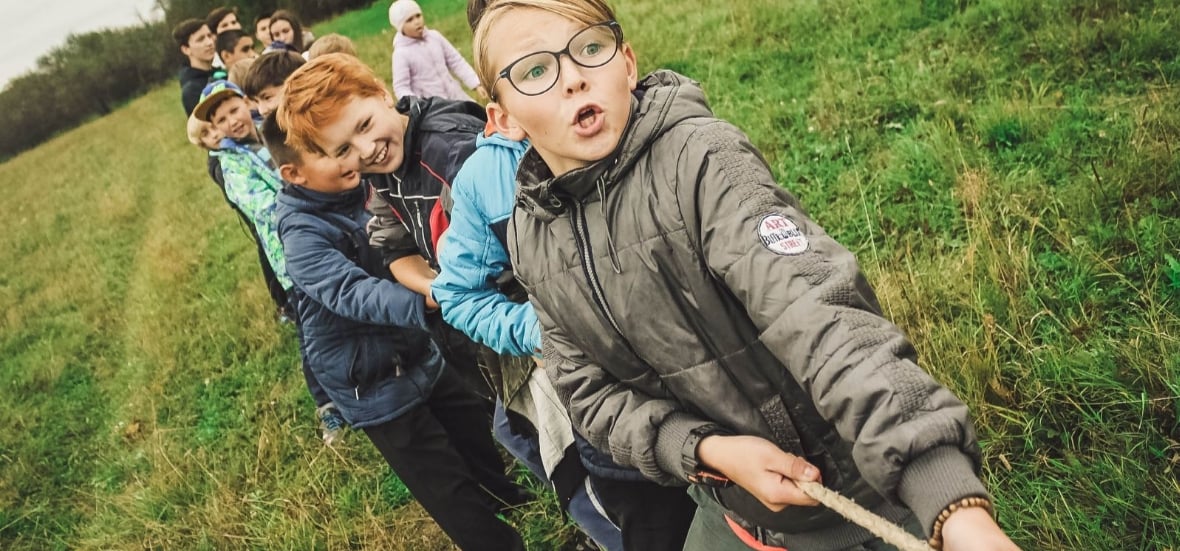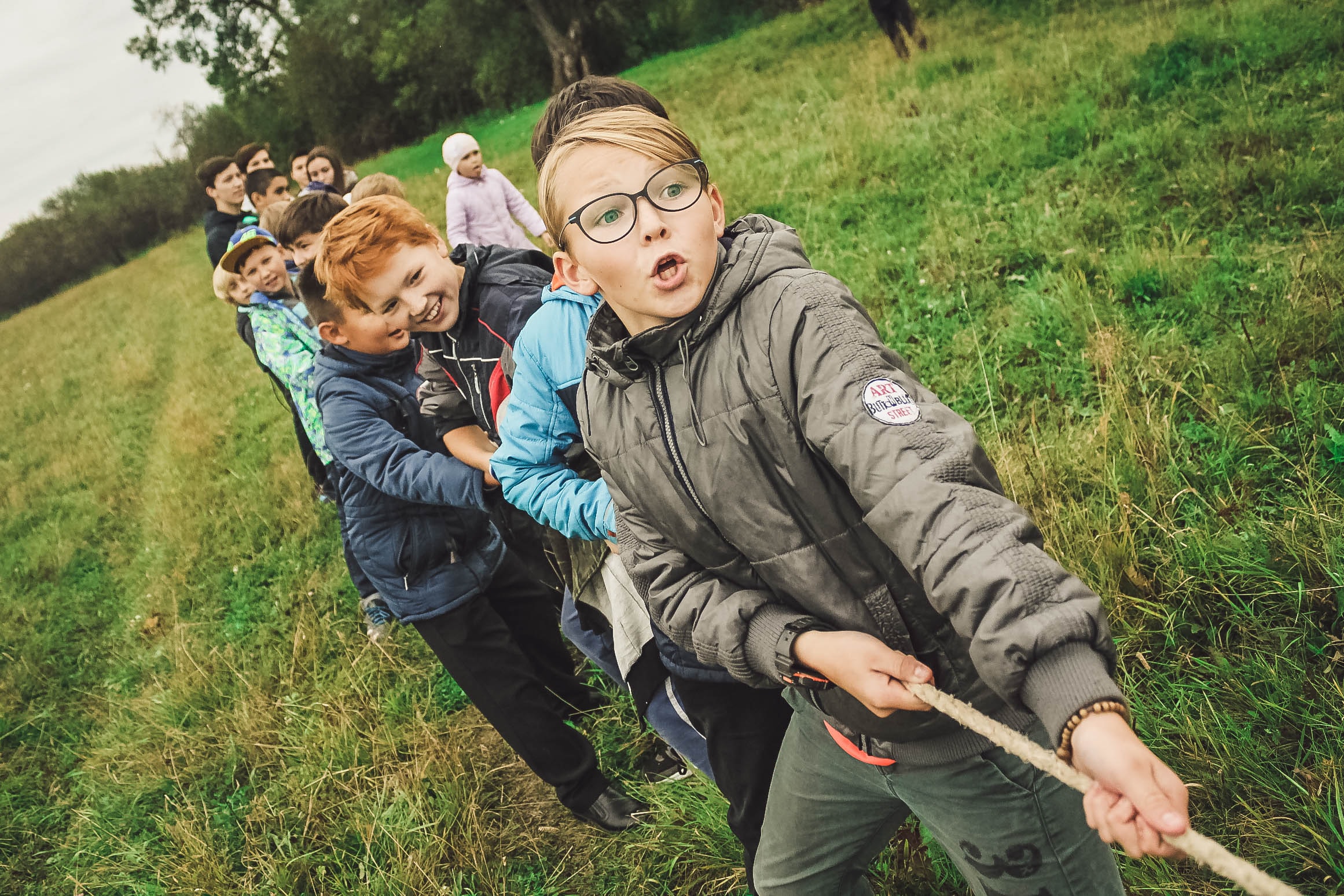
If secular kids are just as virtuous as Catholic kids, Charlene Bader needs to examine her motives as a Catholic parent.
Several years ago, the Los Angeles Times published an op-ed on secular family values, suggesting that children raised in non-religious homes are just as likely as their religious peers to develop "positive traits and virtues." It made me question my motives as a Catholic parent. Am I just raising my kids Catholic as an attempt to have "good" kids? But research says faith isn't necessary for that ...
It's true. My non-religious friends from childhood internalized the Golden Rule and treated others with justice and mercy just as consistently as my weekly-church-going friends. Even without God, they were genuine, kind, and just plain likable. And now, twenty years later, most of these religiously-unaffiliated friends — at least the same percentage as my Christian peers — are moral, upstanding, generous participants in the community.
Of course, I shouldn't be surprised that Christians don't have a monopoly on moral conscience. The Catechism of the Catholic Church (CCC) teaches that every person has access to an internal compass of virtue, quoting Gaudium et Spes:
Deep within his conscience man discovers a law which he has not laid upon himself but which he must obey. Its voice, ever calling him to love and to do what is good and to avoid evil, sounds in his heart at the right moment. ... For man has in his heart a law inscribed by God. ... His conscience is man's most secret core and his sanctuary. There he is alone with God whose voice echoes in his depths. (CCC 1776)
So why bother with our Sunday morning services, prayers before meals, family rosaries, parish socials, and Bible studies if the moral law is available to anyone and everyone, without any formal religious experience?
For one, whether our conscience is formed under secular or religious influences, it is not infallible. The still, small voice within us must be regularly examined, informed, and enlightened. While faith isn't necessary in this process, we receive help, as Catholics, through the Word of God, the gifts of the Holy Spirit, the good counsel of others, and church teaching (CCC 1785).
Mass is also an immersive opportunity for moral formation. The Penitential Rite helps us examine our conscience as we acknowledge our failures. The Liturgy of the Word helps us form our conscience as we listen to Scripture. And throughout the Mass, we receive a concrete example of how to live in good conscience as we contemplate Jesus' life, death, and resurrection.
Still, the LA Times article warns that binding our moral framework to a single group can unintentionally backfire. What happens when a community that identifies as Christian doesn't bear the earmark of love? That answer can be found in the number of online support groups for "Exvangelicals" and "Deconstructing Catholics." All it takes is an awful experience with a clique-ish youth group, an angry church leader, an exclusive parish, or a dysfunctional religious family (with the necessary caveat that every family is a little dysfunctional, right?) for someone to question the entire moral structure of their associated Christian community.
One non-religious parent shared her concern with the LA Times:
“If your morality is all tied in with God ... what if you at some point start to question the existence of God? Does that mean your moral sense suddenly crumbles? The way we are teaching our children … no matter what they choose to believe later in life, even if they become religious or whatever, they are still going to have that system.”
So is it worth the risk, as Catholic parents, to raise our kids in the faith, if a bad church experience could actually harm their internal moral compass? Or what if, after all these years of catechesis, our kids still choose a destructive path as adults?

The painful reality of negative religious experiences cannot be ignored, whether it's caused by the institutional church, a local community, a family, or even a well-meaning individual who speaks out of turn. (Admittedly, this has been me, and I'm deeply, deeply sorry.) For those who have been hurt by religion, I believe Jesus leaves the 99 and pursues each one to the place they've found as refuge and sits with them in the wilderness for as long as they need. (This has also been me, and maybe, it's been all of us, chased out to the wilderness at one time or another by those who claim to represent God. If you're there now, I know it's difficult. I'm sorry. I hope it can somehow be a place of rest and healing.)
As Catholic parents, our highest purpose is not to teach our kids every jot and tittle of the moral law, despite having access to a 2,000-year-old library of Sacred Tradition to help us out. Even if we could somehow teach them every rule, the highest purpose of Catholic parenting is still not to enforce it all.
Our greatest purpose, as Catholic parents, is to introduce our kids to the Author of the universal truth within us. The innate "sense of moral goodness" within each of us is a way of coming to know God (CCC 33). Accordingly, our conscience is much more than just a storehouse of good values. St. Thomas Aquinas says that the work of our conscience, analyzing the gradation of goodness or truth or virtue in an act, is actually a search for ultimate good, "and this we call God" (ST, I. Q2. A3).
Catholic parenting means connecting our kids to God, teaching them how to listen, dialogue, and wrestle with the Spirit of God. When we bring our kids to Mass, pray with them, discuss Scripture, jump through all the bureaucratic hoops for sacraments, and volunteer in the parish or community as a family, we're helping our kids encounter the Eternal.
To be honest, one of my hopes in raising our kids in the Catholic Church is that they'll be "good" kids — kind, generous, just, and all the other virtues, even as I recognize that children from any background, religious or not, can develop similar well-formed consciences. However, my ultimate hope, as a Catholic parent, is that these childhood faith experiences will enkindle a curiosity in my kids' souls to help them connect deeply and genuinely with God.
Of course, there are many reasons to raise kids Catholic. What are some of yours?
Copyright 2020 Charlene Bader
Image: Anna Samoylova (2018), Unsplash
About the Author

Charlene Bader
Born and raised in Texas, Charlene Bader enjoys teaching, editing, and writing while raising 5 boys with her husband, Wally. She learned to love Scripture from her Baptist parents and liturgy from her Episcopal grandma. In 2003, she converted to Catholicism. Charlene is passionate about helping others experience a personal, relevant connection to the Lord in their everyday lives. She writes personally at her blog, Sunrise Breaking.


.png?width=1806&height=731&name=CatholicMom_hcfm_logo1_pos_871c_2728c%20(002).png)
Comments